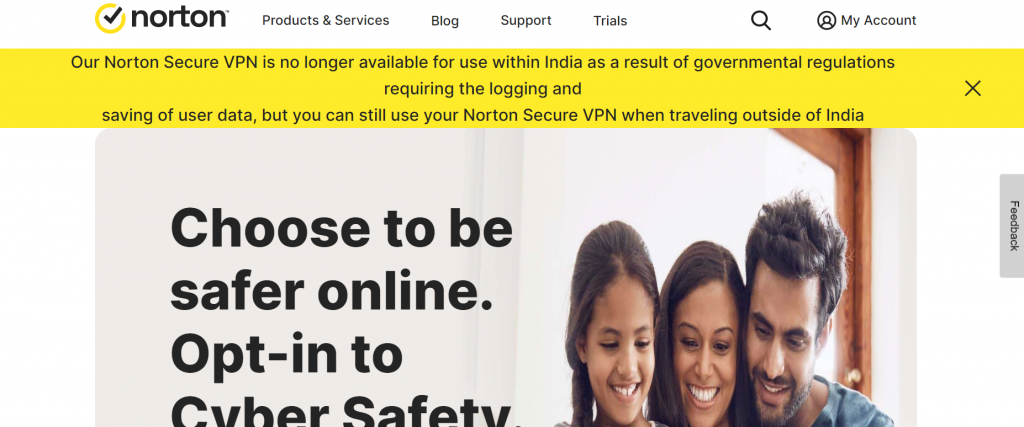
The digital nomad lifestyle is on the rise. More and more people are ditching the 9-5 in favor of a life of travel and remote work. And while this lifestyle has a lot of benefits, it also comes with some challenges. One of the biggest challenges faced by digital nomads is staying connected and secure while on the go. With so many different devices and connections to manage, it can be difficult to keep track of everything. And if you’re working with sensitive data, you need to be extra careful about who has access to it. That’s where VPN comes in. A VPN (virtual private network) is a security tool that encrypts your data and allows you to access the internet anonymously. In this blog post, we’ll explore why VPN is important for the modern digital nomad.
What is a VPN?
A VPN, or Virtual Private Network, is a secure tunnel between your device and the internet. When you connect to a VPN, all of your internet traffic is routed through an encrypted server. This makes it difficult for anyone to spy on your online activities or steal your personal information.
A VPN can also help you bypass restrictions placed on certain websites by your government or workplace. For example, if you’re trying to access a website that is blocked in your country, you can use a VPN to connect to a server in another country where the website is not blocked.
VPNs are an important tool for digital nomads who need to stay connected to the internet while travelling. By using a VPN, you can keep your data safe from hackers and identity thieves, and access any website or service that you need without worry.
The Benefits of Using a VPN
A VPN, or Virtual Private Network, allows you to create a secure connection to another network over the Internet. VPNs can be used to access region-restricted websites, shield your browsing activity from prying eyes on public Wi-Fi, and more.
VPNs are particularly useful for digital nomads, as they allow you to connect to a private network from anywhere in the world. This can be used to access your company’s internal network while you’re away from the office, or to connect to a private Wi-Fi network at a coffee shop or library.
A VPN can also be used to protect your privacy online. By routing your traffic through a VPN server, your IP address will be hidden from the sites you visit. This can prevent advertisers and governments from tracking your online activity.
If you’re looking for a reliable VPN provider, we recommend NordVPN. NordVPN offers fast speeds and robust security, making it a great choice for digital nomads.
The Different Types of VPNs

There are three different types of VPNs: remote access, intranet-based, and extranet-based.
1. Remote Access VPNs: This type of VPN allows employees to connect to the company network from a remote location. Typically, a remote access VPN uses the Internet to connect employees to the company network. The most common type of remote access VPN is a virtual private dial-up network (VPDN). VPDNs use the public switched telephone network (PSTN) to connect an employee’s computer to a central server.
2. Intranet-based VPNs: This type of VPN uses a private network, such as a company’s internal network, to connect users. An intranet-based VPN uses tunneling protocols to encrypt data and provide security for communications between users on the private network.
3. Extranet-based VPNs: This type of VPN connects two or more business partners over an extranet, which is a shared or dedicated portion of the Internet. Extranet-based VPNs use tunneling protocols to encrypt data and provide security for communications between business partners.
How to Choose the Right VPN
If you’re a digital nomad, you know that having a reliable VPN is essential. But with so many options on the market, how do you choose the right one? Here are a few things to consider:
– Price: Don’t overspend on a VPN just because it’s popular. There are plenty of affordable options that will do the job just as well.
– Server locations: Make sure the VPN has servers in countries where you’ll be working. That way, you can connect to a local server for faster speeds.
– Bandwidth limits: If you plan on streaming or downloading a lot of data, make sure the VPN doesn’t have strict bandwidth limits. Otherwise, you could end up paying overage fees.
– Compatibility: Check to see if the VPN is compatible with your devices and operating system. Some require special software or configuration.
By keeping these factors in mind, you can narrow down your choices and find the perfect VPN for your needs.
The Best VPNs for Digital Nomads
As more and more people are embracing the digital nomad lifestyle, the need for a good VPN becomes even greater. A VPN (virtual private network) allows you to securely connect to the internet from anywhere in the world. This is especially important if you’re working on sensitive or confidential material, as it ensures that your data is safe from prying eyes.
There are a lot of different VPNs on the market, so it can be hard to know which one to choose. That’s why we’ve put together this list of the best VPNs for digital nomads, based on our own experiences and recommendations from other nomads.
1. TunnelBear: This VPN is easy to use and has a great free plan that’s perfect for occasional use.
2. ExpressVPN: If you need a reliable and fast VPN for heavy internet usage, ExpressVPN is a great option.
3. NordVPN: Another great option for those who need a fast and reliable VPN, NordVPN offers some of the best security features on the market.
4. CyberGhost: A budget-friendly option that’s perfect for those who are new to using a VPN.
5. PrivateVPN: A smaller but perfectly formed VPN service that’s ideal for those who value privacy above all else.
Our Recommendation: NORTON Website

If you’re looking for a VPN that offers both security and privacy, we recommend Norton VPN. Norton is one of the most well-known and trusted names in cybersecurity, and their VPN offering is no exception. With Norton VPN, you can be sure that your data and browsing activity are safe from prying eyes, whether you’re at home or on public Wi-Fi. In addition, Norton VPN encrypts your traffic so that your ISP can’t see what you’re doing online. This is especially important if you’re using a public Wi-Fi network, as these are often unsecured and vulnerable to attack.





